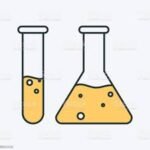Chemistry and Pharmaceutical Technology: Advancing Healthcare and Therapeutics
Welcome to our website dedicated to the fascinating intersection of chemistry and pharmaceutical technology. Chemistry plays a crucial role in the discovery, development, and production of pharmaceuticals that improve human health and save lives. Join us as we delve into the world of chemistry and pharmaceutical technology, uncovering the innovative applications and advancements that shape the field of medicine.

- Drug Discovery and Design: Chemistry is at the forefront of drug discovery and design. Medicinal chemists employ their expertise to identify and synthesize new molecules with potential therapeutic properties. They study the interactions between drugs and their targets in the body, aiming to develop safe and effective treatments for various diseases and conditions.
- Formulation Development: Chemistry contributes to the development of pharmaceutical formulations. Chemists work on optimizing the delivery and stability of drugs, developing various dosage forms such as tablets, capsules, injections, and transdermal patches. They study the physicochemical properties of drugs and excipients to ensure optimal drug release and absorption in the body.
- Analytical Methods for Quality Control: Chemistry plays a critical role in ensuring the quality and safety of pharmaceutical products. Analytical chemists develop methods to analyze and quantify the active ingredients and impurities in drugs. These methods help ensure the consistency, purity, and potency of pharmaceutical products, ensuring their effectiveness and safety.
- Drug Delivery Systems: Chemistry enables the development of advanced drug delivery systems. Chemists design and optimize drug carriers, such as nanoparticles, liposomes, and micelles, to enhance drug stability, target specific tissues, and control drug release. These delivery systems improve drug efficacy, reduce side effects, and enable targeted therapy.
- Process Optimization and Scale-up: Chemistry contributes to the optimization and scale-up of pharmaceutical manufacturing processes. Chemists and chemical engineers work together to develop efficient and cost-effective processes for large-scale drug production. They optimize reaction conditions, purification techniques, and formulation processes to ensure consistent and high-quality pharmaceutical products.
- Biopharmaceuticals and Biotechnology: Chemistry plays a significant role in the development of biopharmaceuticals, including proteins, peptides, and nucleic acid-based drugs. Chemists study the structure and stability of these complex molecules and develop methods for their production and characterization. They also contribute to the development of biotechnological tools and techniques used in drug discovery and manufacturing.
- Regulatory Compliance and Drug Safety: Chemistry supports regulatory compliance and drug safety in the pharmaceutical industry. Chemists provide scientific expertise to ensure compliance with regulatory standards and guidelines. They conduct safety assessments, stability studies, and toxicological evaluations to ensure the safety and efficacy of pharmaceutical products.
At our website, we explore the captivating world of chemistry and pharmaceutical technology, uncovering the principles, applications, and advancements that drive innovation in healthcare and therapeutics. Join us as we delve into drug discovery and design, formulation development, analytical methods for quality control, drug delivery systems, process optimization and scale-up, biopharmaceuticals and biotechnology, and regulatory compliance. Welcome to a place where chemistry and pharmaceutical technology pave the way for better health and improved patient care.

